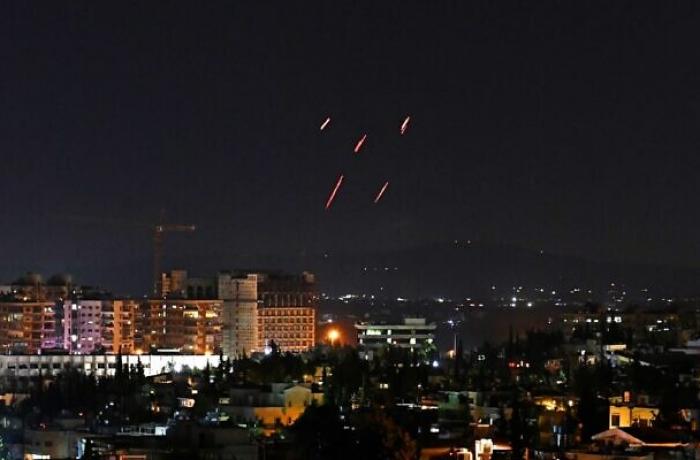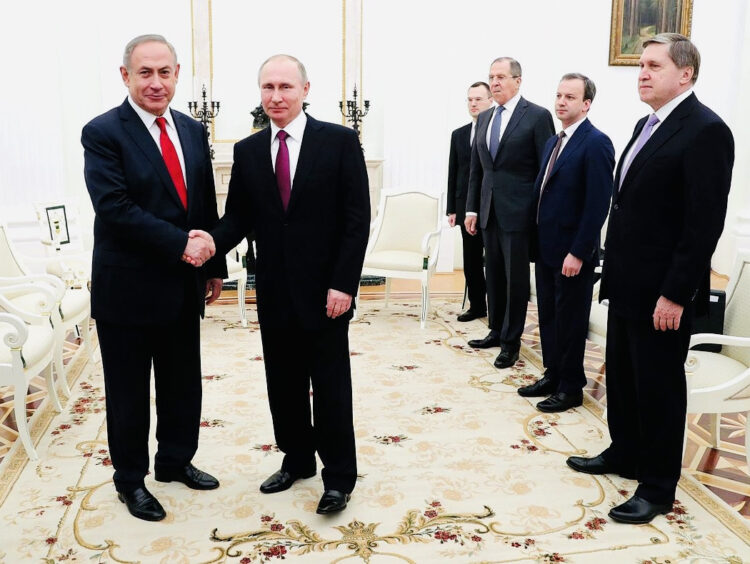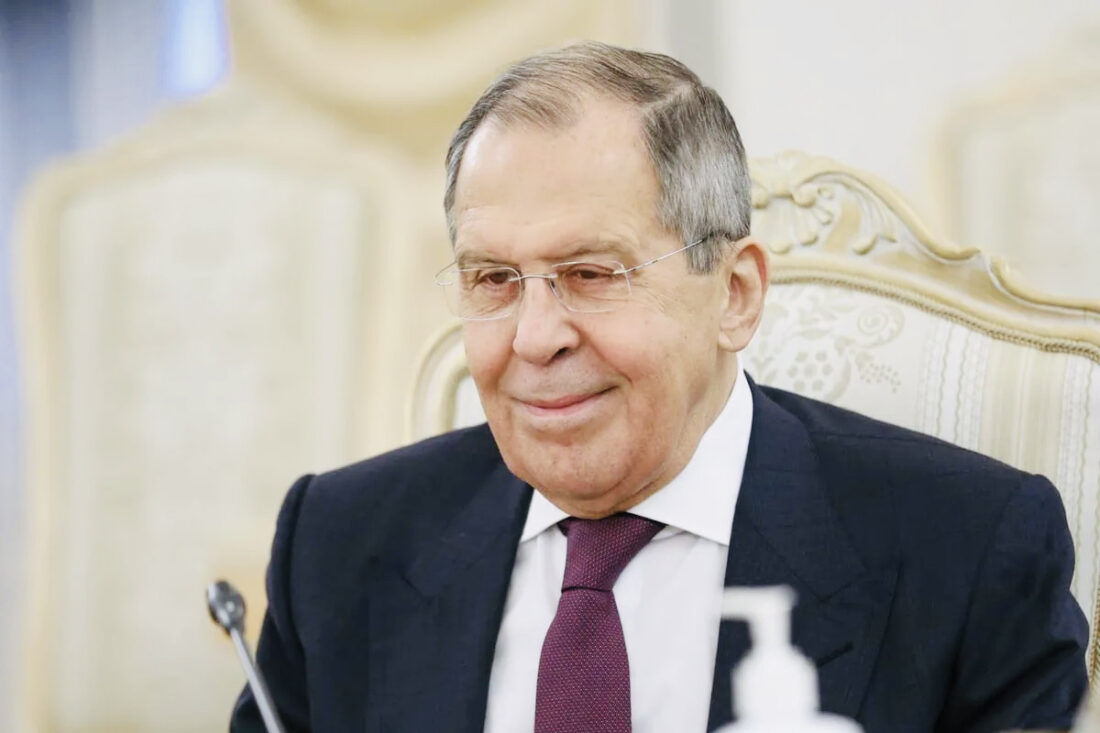Is Russia running out of patience with Israel’s ongoing air campaign in Syria? Is Russia planning to curb them?
These questions bubbled to the surface late last month after two related developments.
First, the London-based Arabic newspaper Asharq Al-Awsat, citing a “well-informed” Russian source, claimed that Russia is planning a shift in its current policy of tolerating such Israeli raids in Syria, which has been embroiled in a civil war for the past decade.
Asharq Al-Awsat said that, following talks with the United States on this issue, Russia had gained the impression that the Biden administration does not welcome Israel’s strikes and now believes it can act more aggressively to thwart them.
In addition, the report in Asharq Al-Awsat disclosed that Russia is now sending more advanced anti-missile batteries to Syria to counteract Israeli air raids, which are sometimes launched from neighboring Lebanon.

Second, a senior Russian military official said that Russian-supplied anti-aircraft systems manned by Syrian personnel had intercepted missiles fired by Israeli fighter jets in raids over Syria, Russia’s chief Arab ally in the Middle East.
Vadim Kulit, the deputy chief of the Russian Center for Reconciliation of the Opposing Parties in Syria, said late last month that four Israeli F-16 fighter jets had penetrated Syrian airspace southeast of Aleppo on July 19 and had fired eight missiles, seven of which were downed by Pantsyr-S and Buk-M2 anti-missile defence systems.

Normally, Russia remains conspicuously silent after Israeli air strikes. But in the wake of Israel’s July 19 operation, which was reported to have killed Hezbollah and Iranian Islamic Revolutionary Guard Corps’ commanders, the Russians broke their customary silence.
In recent years, the Israeli air force has launched hundreds of sorties targeting Iranian bases, Hezbollah arms convoys en route to Lebanon, and Syrian anti-aircraft batteries.
Russia has occasionally criticized such raids, but in general has grudgingly accepted them under a deconfliction agreement with Israel designed to prevent clashes between Israeli and Russian aircraft.
The current Israeli opposition leader, Benjamin Netanyahu, who was prime minister until June, worked assiduously with Russian President Vladimir Putin to avoid altercations over the skies of Syria, which has fought several wars with Israel since its emergence as a sovereign state in 1948.

After Asharq Al-Awsat published its report, Netanyahu’s Likud Party issued a statement blaming Prime Minister Naftali Bennett and Foreign Minister Yair Lapid for Russia’s reported efforts “to limit” Israel’s “freedom of action” in Syrian airspace.
“We maintained freedom of action in Syria thanks to Netanyahu’s close relationship with Russian President Vladimir Putin,” the partisan statement noted. “If these reports are accurate, this failed government has lost another vital strategic asset that Israel enjoyed under the Netanyahu government.”
Following Russia’s decision in 2015 to send combat aircraft to Syria to shore up President Bashar al-Assad’s faltering defences, Netanyahu made the first of more than ten trips to Moscow. His objective was to reach a firm understanding with the Russians regarding Israel’s bombing raids in Syria, which are primarily aimed at blocking Iran’s attempts to entrench itself militarily on the Syrian side of the Golan Heights.
Syria has been aligned with Iran — the preeminent Shi’a power in the region and Israel’s deadliest enemy — since 1980, the year Iran’s eight-year war with Iraq broke out.
The Syrian regime also has close ties with Hezbollah, the Lebanese Shi’a militia which fought a guerrilla war with Israel in southern Lebanon from 1982 until 2000, a fullscale war with the Israelis in 2006, and a number of border skirmishes since then.
The Russians have fought alongside Iranian and Hezbollah forces in assisting Syria recapture territory ceded to Syrian rebels since the outbreak of the civil war in 2011.
But Russia, which has had cordial relations with Israel since the collapse of the Soviet Union in 1991, essentially opposes Iran’s quest to attack Israel from bases in Syria. Such attacks engender instability, which undermines Russian long-term interest of rebuilding and rehabilitating Syria once the civil war finally ends.
In the meantime, much to Russia’s concern and discomfort, Israel continues to bomb Iranian and Hezbollah sites in Syria, which tolerates their presence.
Since Israel’s deconfliction accord with Russia went into effect, there have been several incidents during which they almost perilously slid into armed conflict, according to Netanyahu.
“We have four times come close to collisions,” he said in 2019. “Our planes in Syria’s crowded airspace almost collided with Russian planes.”
“Putin told me that were it not for our relationship, we could have found ourselves in the midst of a military clash,” he added.
The most serious incident of its kind occurred three years ago in September, when Syrian gunners accidentally shot down a Russian reconnaissance plane, killing all 15 crew members, during an Israeli air raid. Russia blamed Israel for the mishap, claiming it had breached the deconfliction agreement.
Since then, the Russians have twice blasted Israel for its continuing operations in Syria.
“There is no way that we are approving any Israeli strikes on Syria, never in the past and never in the future,” the Russian ambassador to Israel, Anatoly Viktorov, asserted last year.
Earlier this year, Russian Foreign Minister Sergei Lavrov urged the Israeli government to advise Russia of threats to its security from Syrian territory before attacking Syria. “Report the facts urgently and we will take every measure to neutralize the threat,” he said.
Early last month, Russia, joined by Turkey, and Iran, condemned “continuing Israeli military attacks in Syria, which violate international law, international humanitarian law, the sovereignty of Syria and neighboring countries, and endanger stability and security in the region.”
The Israeli government is likely to ignore this criticism as long as Iran threatens Israel and continues to build up its forces in Syria.
